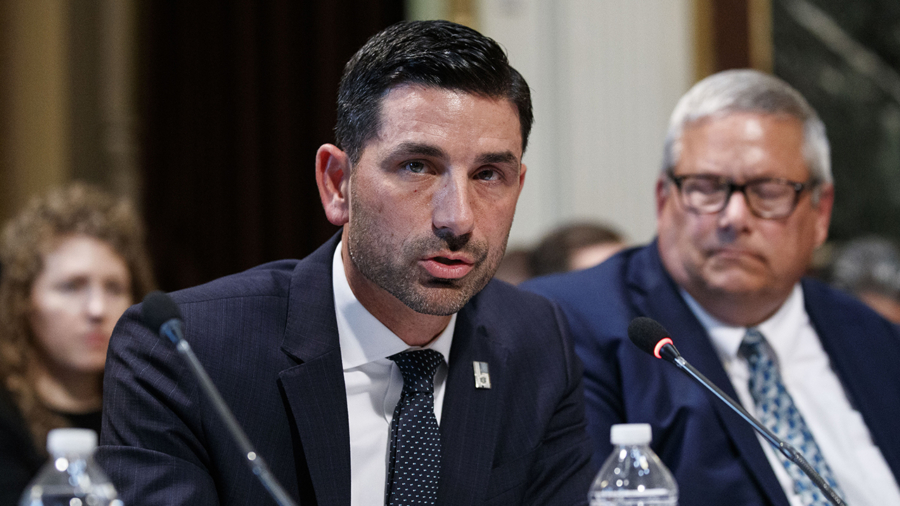On Monday, Acting Secretary of Homeland Security Chad F. Wolf and Acting Director of U.S. Immigration and Customs Enforcement Matt Albence travelled to Raleigh, North Carolina, to participate in a roundtable discussion with federal, state, and local officials about the ongoing immigration and security issues in the state, said a DHS press release.
Wolf’s visit comes on the heels of North Carolina Governor Roy Cooper vetoing a bill that would have required local law enforcement officials to cooperate with ICE.
In an interview with Fox News following the discussion, Wolf said he thinks “sanctuary city policies endanger communities.” He also claimed the policies make the jobs of ICE officials “more difficult.”
During his first week as acting DHS secretary—in support of the men and woman working for ICE—Wolf is making a focus of attacking current sanctuary city policies, saying they are a magnet and haven for criminals.
He says currently there are over 480 ICE detainers that have been refused by North Carolina law enforcement.
Wolf recently won Senate approval as undersecretary for policy, the job for which he was nominated months ago. That confirmation allowed Wolf to move up to secretary on a temporary basis.
Wolf was the chief of staff when Kirstjen Nielsen ran the department, and he served under previous Republicans at DHS in other roles.
He replaces acting Secretary Kevin McAleenan, who held that post for about six months. Wolf also announced Ken Cuccinelli, acting director of U.S. Citizenship and Immigration Services, as his deputy.
Cuccinelli, a mainstay on TV supporting Trump’s policies, has said he was mandated by the president to get out the message. Cuccinelli was among those in the running to lead DHS before Wolf took over.
The 240,000-employee department also manages disaster relief, counterterrorism, election security, and the U.S. Coast Guard. But in Trump’s tenure, it has focused on immigration.
Wolf said in a statement to staff that he would work to continue immigration enforcement at the border.
“We must stay vigilant and steadfast in order to stay ahead of the threats and restore integrity to our immigration system,” Wolf said.
The former acting deputy, David Pekoske, will go back to his role as the head of Transportation Security Administration.

DHS Statistics
According the DHS website, The 2001 Supreme Court decision in Zadvydas v. Davis significantly restricts the ability of the Department of Homeland Security (DHS) to detain aliens with final orders of removal, including serious felony offenders, if their home countries will not accept their return.
- In Fiscal Year 2017, more than 2,300 aliens were released because of that court decision, including more than 1,700 criminal aliens.
- In addition to those who enter illegally, visa overstays account for roughly 40 percent of all illegal immigration in the United States.
- Some jurisdictions do not honor ICE detainer requests to hold or provide adequate notice of release of criminal aliens who are already in custody, endangering the public and threatening officer safety by releasing criminal aliens back into our communities to re-offend.
- Instead of allowing ICE officers to take custody of criminal aliens in a secure environment, such as a local jail, jurisdictions that refuse to honor ICE detainers put ICE officers and others at risk by forcing them to go into often perilous environments to arrest dangerous criminal aliens.
- There are nearly one million aliens with final orders of removal, and not enough officers or resources to deport them.
- Of the 53,908 criminal cases filed by federal prosecutors in the 94 U.S. District Courts in fiscal year 2016, 23,573 cases (43.7 percent) were located in just the five border districts (Arizona, Southern District of California, New Mexico, Southern District of Texas, and Western District of Texas).
- Half of all federal criminal cases filed in U.S. District Courts in Fiscal Year 2016 (25,965 of 53,908 cases) were referred by the DHS.
The Associated Press contributed to this report.


